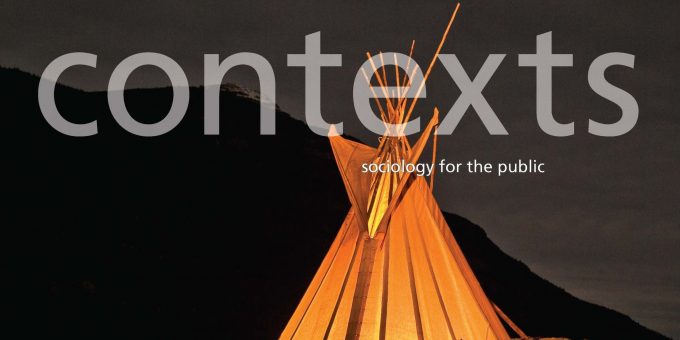Summer 2025 Table of Contents
- “Believing in Each Other,” by Parker Muzzerall.
- “An Axis of Educational Access,” by Elena G. van Stee.
- “Coding Our AI Interactions,” by Colter J. Uscola.
- “Perceiving Inequality,” by Parker Muzzerall.
- “High Taxes, Highbrow Culture,” by Elena G. van Stee.
- “Gentrification on Main Street,” by Colter J. Uscola.
- “Public Libraries Take to TikTok,” by Colter J. Uscola.
- “What’s It Worth?” by Parker Muzzerall.
q&a:
special section:
- “Canada and the United States—A Friendship Strained,” by Seth Abrutyn, Amin Ghaziani, David Tindall, Liam Swiss, and Pallavi Banerjee. A curated collection of sociological essays on the fraying of an international relationship built on years of trust, reciprocity, mutual understanding, and shared reality, this special section considers U.S.-Canada relations from the Canadian perspective.
features:
- “Love, Activism, and Social Change,” by chaniqua d. simpson. Through ethnographic research with the Black Youth Project 100, this piece sheds light on how activists utilize love as a social movement tactic and how their approaches, including a commitment to a Black queer feminist lens, offer new ways to think about activism, freedom, and community-building.
- “How White Americans Decide What’s Racist and Sexist,” by Jessi Streib and Betsy Leondar-Wright. Why do White conservatives and White liberals disagree about what is—and is not—racist and sexist? Research with more than 125 White voters reveals a definitional divide driving this persistent gap and recommends a better way forward.
- “Digging into Indigenous History,” by Stephanie A. Bohon and Shaylee Hodges. Nantucket construction uncovered human remains right where the map said they’d be. In this feature, we learn how racial ignorance has allowed developers, collectors, politicians, and scientists to ignore, desecrate, and erase sacred Indigenous burial sites.
- “Plants as Part of Our Social Worlds,” by Sarah Elton. Plants produce oxygen, shade, food, medicine, fuel, and so much more. They are intimately bound up in our day-to-day lives. Because plants are so central to building the worlds we live in, understanding our relationships with them will help us better understand our multispecies society.
- “A New Utopia? Re-Imagining Life in Underwater Hotels,” by Phillip Vannini and April Vannini. From the surface of a planet scarred by war and threatened by climate change, few endeavors might seem more feckless than the development of underwater hotels. Yet such sites reshape our understandings of human and more-than-human life.
in pictures:
culture:
trends:
books:
policy brief:
one thing i know:

